The fuel cell electric vehicles (FCEV) being developed by General Motors, Hyundai, and Toyota are the objects of ridicule by many battery-electric fans and advocates. Like plug-in hybrids, this green vehicle solution with zero tailpipe pollutants seems threatening to the EVangelists somehow. Don’t mistake this article for one praising the idea or practice of creating fuel cell electric vehicles. Rather, let’s look closely at just how few battery-electric vehicles most brands delivered in the U.S. market by using the Toyota Mirai FCEV as our yardstick.
Toyota Mirai Deliveries In 2021
In 2021 Toyota reported strong growth of its green-powertrain-equipped vehicles. Toyota reports that among its 583,697 green powertrain-equipped vehicles it sold in 2021 Mirai FCEV deliveries accounted for 2,229 units. That’s a growth rate of over 400% in a year when most manufacturers’ total deliveries dropped drastically. Toyota is conducting quite a bit of hand-holding for the owners that it sets up with Mirais. We are not pretending otherwise. We are quite aware that you are more likely to be hit by lightning than to drive past a public hydrogen refueling station in America.
Notable BEV Deliveries In 2021
Many manufacturers made important gains related to electrified vehicles in 2021. Notably, Tesla, which continues to add manufacturing capacity by the gigas. Ford and VW both launched and delivered a meaningful, yet very small by any measure, volume of crossover battery electric vehicles. Hyundai broke the ice by delivering a handful of its new IONIQ5 cars late in the year, adding that model to the handful of Niro and IONIQ cars it delivered. Mazda also broke the ice, delivering its new MX-30 to 181 California residents. Rivian and Lucid delivered a small number of BEVs. How small? They don’t highlight the delivery numbers on their own media pages. MINI launched its Cooper SE in 2021, and we even had a chance to try one out. Include MINI in the brands that build BEVs right now. That’s pretty much the end of the good news with regard to BEV deliveries for 2021.
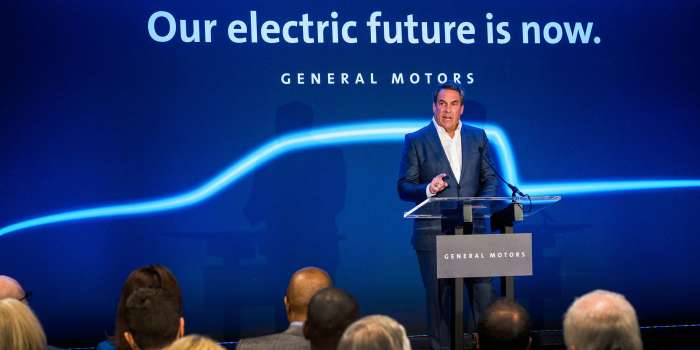
GM BEV Deliveries 2021
Here’s some bad news. GM delivered just 24,828 battery-electric vehicles in America in 2021. That’s more than Toyota’s Mirai for sure. But not in Q4. In the last quarter, GM only delivered 25 BEVs. Mirai topped that. Wasn’t GM the company that told us three years ago its all-electric future was NOW?
Related Story: Tesla Model S/X Deliveries Drop By Half to Hit All-Time Low In 2021
Toyota Mirai Outsells Tesla Model X
Tesla’s overall year was fantastic. Amazing. Fantabulous. Its progress in almost all areas cannot be overstated. Except that, by our estimates, the Toyota Mirai outsold the Tesla Model X in 2021. During 2021, one setback for Tesla was that its combined deliveries (globally) of the X/S lines fell to about one-quarter of its former peak of sales which happened five years ago. There are many good excuses for this. But… Mirai seems to have passed Model X in deliveries. We’d tell you for certain, but like some manufacturers, Tesla doesn’t want you to know its deliveries by model or market.
Hyundai, Kia, Nissan
Here’s some more bad news. Hyundai and Kia delivered so few EVs that they don’t include the numbers in their annual delivery reports. Nissan delivered about 14,000 Leafs in 2021. Nealry the exact number it sold in 2016. We commend Nisson for remaining in the game for a decade with a model that sells at a rate of less than 1,500 units per month. But with ten years of experience in the market and two and a half generations of Leafs, all of which had both customer-facing and manufacturer-facing incentives of many thousands of dollers per unit, has the Leaf proven that affordable BEVs can work, or that they can't work? It seem that is open to debate.
Brands With Little Or No EV Sales In 2021
However, beating up on companies that actually deliver a BEV is also not what this story is about. The brands above are the ones at least making a token effort (or heroic effort in the case of Tesla). Let’s talk about some other brands for just a bit. Subaru didn’t sell any BEVs in 2021. It may re-badge some Toyota BEVs this year if all goes well. Lincoln, Jeep, Chrysler, and Mitsubishi have some PHEVs for sale in small numbers, but no BEVs. Honda moved to kill off its Clarity line off due to overwhelming customer love for the car (not kidding). Volvo is all about electrification. Given the brand’s many messages about its turn to electrification, one would assume that it sold gobs of BEVs in 2021 in the U.S. Nope. 755.
Fan-Favorite Imaginary EVs
The talk around full-size BEV pickup trucks is deafening. There are frequent articles arguing over which imaginary electric truck is better. Is it the Cybertruck (zero deliveries)? Ford's Lightning (zero deliveries)? Or perhaps the Silverado (zero deliveries).
Without hurting our brain doing too much math, by our count, Toyota’s hydrogen fuel cell electric vehicle out-delivered the combined BEV deliveries by about a dozen prominent brands in America this past year. If Mira was its own brand it would have outsold the BEVs delivered by Lucid, Rivan, Mazda, and Volvo combined based on the hazy delivery information provided to the media.
2022 may be a better year for battery-electric deliveries. It will be interesting to see how many brands’ BEVs the unloved Mirai fuel cell electric vehicle outsells in the twelve months to come.
2021 Mirai image courtesy of Toyota. Electric Future Is Now Image courtesy of GM media files.
John Goreham is a long-time New England Motor Press Association member and recovering engineer. John's interest in EVs goes back to 1990 when he designed the thermal control system for an EV battery as part of an academic team. After earning his mechanical engineering degree, John completed a marketing program at Northeastern University and worked with automotive component manufacturers, in the semiconductor industry, and in biotech. In addition to Torque News, John's work has appeared in print in dozens of American news outlets and he provides reviews to many vehicle shopping sites. You can follow John on TikTok @ToknCars, on Twitter, and view his credentials at Linkedin
Re-Publication. If you wish to re-use this content, please contact Torque News for terms and conditions.
Set Torque News as Preferred Source on Google


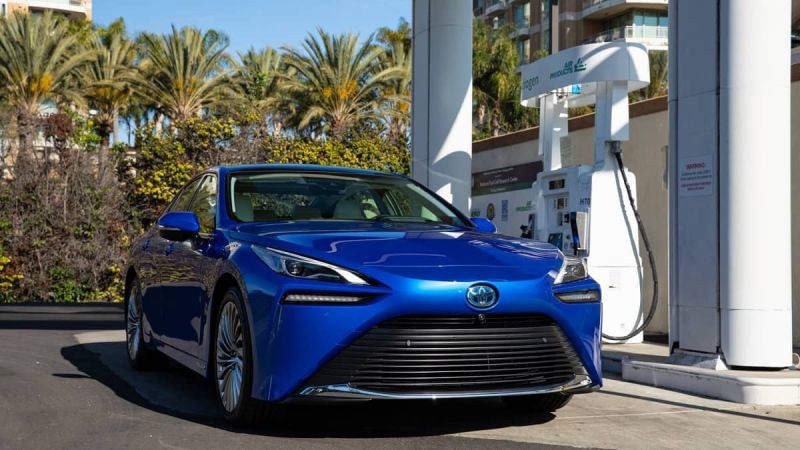




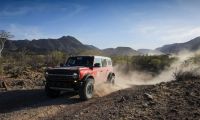
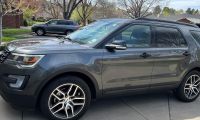

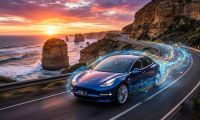
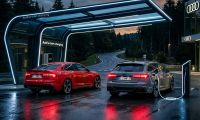
Comments
That's surprising and at the
Permalink
That's surprising and at the same time very heartening! If one includes trucks, the big-daddys of transportation, then the FCEV industry would have a lot more to cheer about. Australian FCEV Truck maker Hyzon is on a blaze actually delivering commercial trucks to China customers!
John, Volvo USA claims that
Permalink
John, Volvo USA claims that 2021 saw 22,820 sales of Recharge (EV and PHEV) models. I searched for “2021 volvo T8 sales” and 2nd hit had Volvo’s official press. As long as that’s true, Mirai missed that mark. I appreciate your comparisons and perspective in this piece though. Good things to keep in mind about just how few EVs were sold from some manufacturers/for some models.
Thanks, Justin. I appreciate
Permalink
In reply to John, Volvo USA claims that by JustinHart (not verified)
Thanks, Justin. I appreciate the heads up. The Volvo recharge line includes plug-in hybrids. I'm glad you flagged this. I mistakenly used 100 as the number of BEV Volvos sold in the US in 2021. In fact, after I checked a second time, it was 755. I'll correct the story above to show that number. The Mirai outsold the Volvo BEV sales by more than 2 to one. Toyota's PHEV sales were about 30X what Volvo delivered in 2021 in the U.S.
Mirai sold 5,700 globally.
Permalink
In reply to Thanks, Justin. I appreciate by John Goreham
Mirai sold 5,700 globally. When US figures aren’t available, will use global.
Tesla:
Mirai outsold a tesla model (only in the US) that tesla was not selling for 90% of 2021. True. Tesla sold 190,000 model Y and 120,000 model 3 in US (cox automotive deriving numbers via registration figures).
Volvo:
755 is December only for Volvo. 6,392 in 2021. 16,428 PHEV.
Polestar: 29,000 US BEVs. >10x mirai.
Bmw: no US figures, but 34,000 globally for mini EV, 5x mirai global figures
Kia actually does report US BEV figures, 8,717 for niro BEV in 2021. More than Mirai.
Hyundai: 8,936 Kona EVs sold in US. More than Mirai.
Nissan; Leaf, as you mentioned, outsold the Mirai.
Ford: Mach e outsold mirai, 27,140 for 2021.
GM: bolt outsold the mirai for 2021 as you mentioned.
Rivian and lucid started delivering their first cars produced in the final quarter of the year. On an annualized basis they delivered much more than toyota did for all of 2021.
So in summary: the Mirai did outsell the Mazda BEV (which itself seems to be only a run of 500 cars???) and that’s about it.
This is just from about 10 minutes of googling. There doesn’t seem to be any support for the core argument of this article, that Toyota FCV is outselling BEVs of “a dozen” or even several competing brands BEVs.
PS another article says globally BEVs outsold fuel cell vehicles roughly 400 to 1 in 2021. That’s actually a larger ratio than last few years. Other articles I see show that Toyota is pivoting away from hydrogen having announced dozens of BEVs coming to the next in the next 8 years and 0 new FCV. Not exactly a vote of confidence. Final point: about 3 years ago I looked into leasing or buying a mirai. Hydrogen stations were only in California and were about 40 of them. Today, same exact story, but costs seem to have increased and reliability of stations seem to have declined.
Thanks, Nope. I counted
Permalink
In reply to Mirai sold 5,700 globally. by Nope (not verified)
Thanks, Nope. I counted quickly but I think you listed out about 11 brands. There are around 50 vehicle brands for sale in the U.S., right? So the story's premise is valid? Or no? And as to the postscript in your comment, of course, BEVs outsold FCEVs globally. Who would be crazy enough to think otherwise?
There are plenty of
Permalink
In reply to Thanks, Nope. I counted by John Goreham
There are plenty of (generally small) brands that sold 0 BEVs or FCEV, yes. In that case you could write an article stating that Mazda outsold the FCEV of 48 brands or whatever with their 300 sales of the mx-30, because those brands didn’t make any FCEV. Of brands making BEVs the mirai outsold essentially 1 (Mazda) and arguably 2 (though only in production for 2 months or so, and on an annualized basis they outsold the mirai).
Timely article, and by that I
Permalink
Timely article, and by that I mean it is taking advantage of a time where there's a lull in sales due to new product development and the associated ramp-up in manufacturing across the entire industry to frame a story. A very well composed contrast across manufacturers using the baseline of sales though; kudos.
It's no secret that despite an appetite from consumers for electric vehicles, there just wasn't any manufacturer willing to take the risk until Tesla came along. Before that (from a Toyota perspective), I always thought replacing a Prius power plant with a hydrogen-powered option would have fostered more adoption of the technology instead of packaging it in a vehicle with such "strikingly bold" styling (not that the original Prius wasn't an eyesore to most people at the time). I bought the 2001 Prius when it came out because of the technology, but I nearly didn't just because of the looks and I remember Jay Leno making countless jokes about how ridiculous it looked and how slow it was.
I would have certainly tried a Mirai out for myself had I lived in a location where hydrogen technology was deployed, but the untold piece of this article's angle of view is the infrastructure required to use hydrogen-powered vehicles compared to the infrastructure battery electric vehicles require. There's simply no way to drive a hydrogen-powered vehicle home unless there are compatible fueling stations everywhere you intend to drive, and unfortunately there's not a "brew your own" way to make hydrogen at home in the quantities required (as well as the additional device and energy required to pressurize and "load" it into your vehicle). A similar capability was available decades ago and at one time I was advocating at-home fueling of natural gas powered vehicles using a system made by a company in Canada.
So I can certainly foresee a time when Mirai-type vehicles can prevail (as Toyota has strategically been planning for), but only after hydrogen (or something similar) replaces the substance traveling through the natural gas pipes into homes that can power vehicles in an ecologically sound manner. Realistically, I believe wireless energy transfer capabilities will outpace "green gas" development and electric cars will be able to draw power from the road infrastructure minimizing "range anxiety". This will drastically reduce the number of batteries required in vehicles as the stored energy will only need to get you in and around areas without wireless or physical power.
Let's hope Toyota sells a
Permalink
Let's hope Toyota sells a million more emission free vehicles.
Nissan sold around 50k Leafs
Permalink
Nissan sold around 50k Leafs in 2021 in North America and Europe. Not sure how many were sold in China and Asia. But Nissan sells 6 or 8 different BEVs some as subsidiaries and partnerships in China.
Very interesting. Nissan
Permalink
In reply to Nissan sold around 50k Leafs by David (not verified)
Very interesting. Nissan reported this week it that it sold 14,239 in the U.S. market. Much lower than its previous high point for the model.
Yes I love virtual electrical
Permalink
Yes I love virtual electrical vehicles so much that I put a hundred bucks with Ford for A lightning that I may be in line to get sometime in 2024. Not much will happen before then, right ? No breakthroughs like solid state lithium ion batteries. I did hedge my bet by buying something that actually works good in cold weather and with a pretty solid pedigree for reliability a Toyota RAV 4 prime. My only range anxiety regardless of temperature is my bladder capacity.
Big deal niche market for
Permalink
Big deal niche market for small areas that can get H2 delivered to station new infrastructure inexpensively. Maybe island of Tabago etc.?
Keep H2 for ammonia and semis heavy transport not for autos & airliners. The latter could have onboard APUs where fuel cell would produce added potable water.
New Chinese university report says green H2 is decades away.
Overall cost to ship liquid H2 is 5 times as much as natural gas.
I agree with every point you
Permalink
In reply to Big deal niche market for by Frankie Ku (not verified)
I agree with every point you make, Frankie. H2 seems like a big mistake for personal vehicles and almost unworkable in so many ways. Yet, it might make a great zero local emissions solution for noisy, dirty drayage trucks, ferries, and other applications. How crazy is it that this dead-end tech nobody seems to want is presently outselling the combined BEV sales from most manufacturers?
2230 is hardly worth the ink.
Permalink
2230 is hardly worth the ink. This is joke article. Probably better to be silent than make all the noise about such low effort from world number one. Joke article.
Thanks lyibu. I agree that
Permalink
In reply to 2230 is hardly worth the ink. by Iyibu (not verified)
Thanks lyibu. I agree that "ink" should not be wasted on vehicles with a meager 2230 deliveries or less. Like the Cybertruck, Roadster, Hyundai IONIQ5, Nissan Arriya, Subaru Soltera, Silverado EV, Humer EV, Rivan's products, Lucid's Air, and the combined EV efforts of most manufacturers. We should focus on real green vehicle solutions that one can buy and put to use right now.
Hyundai sells ioniqs like
Permalink
In reply to Thanks lyibu. I agree that by John Goreham
Hyundai sells ioniqs like crazy on this planet. Where are you from?
Hyundai sold a combined total
Permalink
In reply to Hyundai sells ioniqs like by King rocker (not verified)
Hyundai sold a combined total of under 20,000 IONIQ cars in 2021 in the U.S. including the BEVs, PHEVs and HEVs. Do you know how many were BEVs?
In case it is helpful, Car &
Permalink
In reply to Hyundai sold a combined total by John Goreham
In case it is helpful, Car & Driver reported, in October 2021, the 12 highest selling EV’s in the U.S. at that point. Obviously, there were a few more months of sales not included, but it gives us at least a 75% complete picture, and numbers, for Hyundai’s EV sales in the U.S. Note, the Kona EV outsells the Ioniq EV in the U.S. too, and the HEV version of the Ioniq likely sells in higher numbers than the plug-in versions. So likely only a few thousand Ioniq EVs, perhaps over 3k, were sold in the U.S. last year, while at least 3x as many Kona EVs were sold in the U.S. in 2021. The Ioniq 5 will likely outsell both of Hyundai’s older EVs in 2022 (or so I would estimate). Check Hyundai’s sales figures if you are interested (second URL).
https://www.caranddriver.com/features/g36278968/best-selling-evs-of-2021/
https://www.hyundainews.com/en-us/releases/3475
Volkswagen delivered 119,650
Permalink
Volkswagen delivered 119,650 ID.4s globally, with 17,000 of those being in the US. This is just one of the automakers who you have not stated information for in order to make your case.
Numerous BEV models outsold Marai in 2021. I have nothing against hydrogen fuel cell vehicles, but they are simply not as useful as a vehicle you can charge it home while you're sleeping.
Yes, VW can sell all the ID
Permalink
In reply to Volkswagen delivered 119,650 by Nondo Rama (not verified)
Yes, VW can sell all the ID.4s it wishes to build here in the U.S. market. You are absolutely right, numerous BEVs did outsell the Mirai in 2021. And the Mirai outsold all of the combined BEV sales from most automakers in the U.S. market.
Don’t forget Audi.
Permalink
In reply to Yes, VW can sell all the ID by John Goreham
Don’t forget Audi.
So just so we are clear:
VW
Audi
Porsche
Nissan
Ford
Chevy
Hyundai
Kia
Tesla
Volvo
Polestar
Mini
All of the above outsold mirai.
Brands that did not outsell the mirai:
Mazda
Brands that did not outsell the mirai, but outsold the mirai on an annualized basis for months that they were in production:
Rivian
Lucid
US BEV sales: 478,000.
US FCV sales: ~2,500
Enough said. I am frustrated when I think an article is interesting, decide to quickly verify things and find out essentially none of it is even true. Hopefully anyone else that stumbles on this page will benefit from this correction.
Sorry to frustrate you with
Permalink
In reply to Don’t forget Audi. by Nope (not verified)
Sorry to frustrate you with facts. There are nearly 50 automotive brands in the U.S. How many do you think had BEVs that outsold the Mirai in 2021? Not Ford. Not Subaru. Not Lincoln. Not Cadillac. Not GMC, Not Buick. Not Mitsubishi. Not Infiniti. Not Lexus. Not Honda. Not Acura. Not Jeep. Not Buick. Not Dodge. Not Bentley. Not Maserati. Not Ferrari. Did Porsche? How about Nicola? How about Hummer? How about Bollinger or Lordstown Motors? Keep the list going. Let us know if you can disprove the headline or if any of the facts are wrong. If the facts in the story are wrong, I can edit them. Thanks for listing Lucid and Rivian. If you have a link to the sales results from each of those Mfgs. please add a link here. Neither has a sales update posted yet that I can see. I'm friendly with the Rivian PR folks. They won't tell me how many they sold.
Your facts didn’t annoy me at
Permalink
In reply to Sorry to frustrate you with by John Goreham
Your facts didn’t annoy me at all, although there weren’t many of them in the article. What annoyed me was the misinformation regarding Hyundai/Kia sales, as well as the omission of all the other brands that sell BEVs.
A more honest article would say that of all brands making EVs for more than 3 months, Toyota FCEV outsold 1 of them. Just one.
It is true the mirai outsold many BEVs that don’t exist. It’s also true that the hummer EV (with 1 sale) outsold 48 brands of FCEV that also don’t exist. So maybe you can write an article that despite selling 1 vehicle, hummer actually outsold most brands of fuel cell vehicles. But why stop at auto brands? If we are including “brands” that haven’t made a single car, why not include other companies that haven’t sold a single car? The hummer EV also outsold Kraft fuel cell vehicles, and google, Nintendo, and dominos fuel cell vehicles.
Blatant errors in your article:
Volvo did not sell 755. They sold 6,392:
Kia sold 8,717
Hyundai over 10,000
Audi over 10,000
VW over 15,000
Ford over 25,000
PS: yes, Porsche outsold the mirai by 4x, because they make a BEV. Another bit of misinformation.
And you can’t be that friendly with rivian PR: 920 vehicles in 1 quarter.
Removed url since I think they’re being blocked. But all verifiable in seconds. Just google “Porsche us BEV sales” etc and there is a car and driver article about best selling electrics in US as well with more figures.
Nope, I think you are
Permalink
In reply to Your facts didn’t annoy me at by Nope (not verified)
Nope, I think you are confusing this article for one that is a catalog of the BEV sales by manufacturers. It is not. It is a story that highlights that a technology everyone considers to be a likely failure (FCEVs) from a manufacturer many feel have dragged their feet on zero-emissions vehicles, still outsold the combined BEV efforts of about half of automakers' brands. Thank you for the help with the facts and figures of the minority of automakers who did have some BEV sales in 2021. The story makes clear in its introductory paragraph that the Mirai is a metric by which we can compare just how few BEVs were sold by just how few brands. In 2021.
“Combined effort” implies
Permalink
In reply to Nope, I think you are by John Goreham
“Combined effort” implies these are companies that have made an effort. Almost all of them have made no effort to make any BEVs at all in the US, and almost all of them don’t actually sell many cars in the US. What are maserati sales figures in the US? Not holding my breath.
If other brands were trying to sell BEVs and were failing more than Toyota that would be interesting. Instead, they just never made any, at least in the US.
Since the mirai only outsold 1 brand that was making EVs, you could make the same article that the hummer EV is also outselling the “combined EV efforts” of the vast majority of brands despite having sold 1 vehicle. Does that sound absurd to you? Maybe not. But the rest of us are amused at least.
Plug in electric is a loser..
Permalink
Plug in electric is a loser...zero long term infrastructure to create electricity.. Cumbersome and kinda idiotic recharging procedures and time wastes.
Hydrogen is the near future..specifically solid state hydrogen which is rapidly advancing